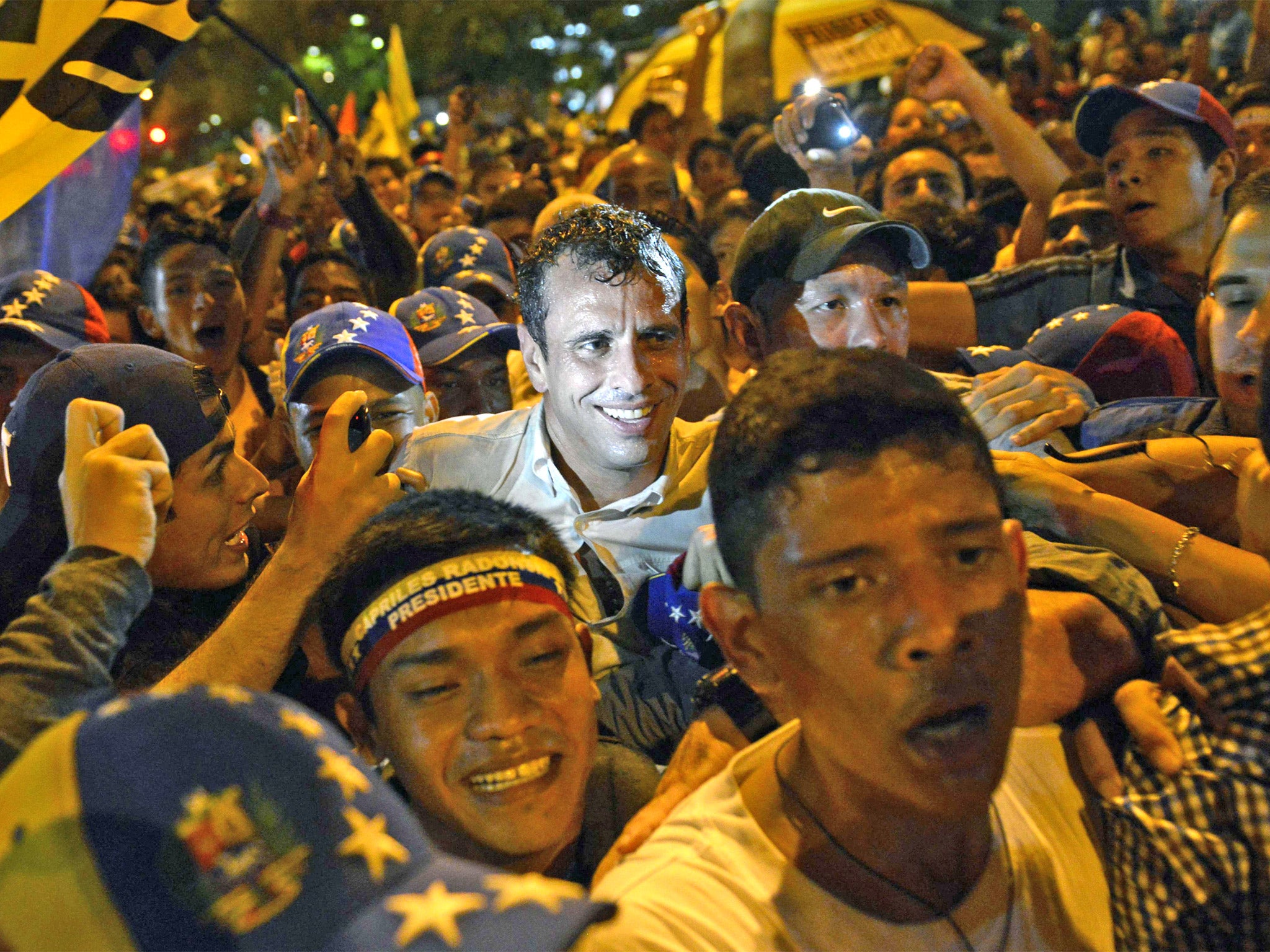Violence - and Hugo Chavez - loom large over race for power in Venezuela
The battle to succeed El Comandante has begun

Hugo Chavez has gone but he continued to cast a long shadow over the race to decide who will succeed him as President of Venezuela as the election campaigns of his anointed heir, Nicolas Maduro, and erstwhile rival Henrique Capriles officially began.
Mr Maduro, who is acting president, made a pilgrimage to late socialist leader’s birthplace and pledged to win the election on 14 April in his honour, as the issue of Venezuela’s spiralling crime rate spilled on to the streets with anti-violence marches across country. Along with his initiatives to help the poor, Chavez also left as a legacy one of the highest murder rates in the world.
Joining a protest with thousands of his supporters in Caracas on Monday, Mr Capriles shouted: “We want to build a country where everyone can walk in the streets without fear.”
Mr Maduro opted to shift the blame for the difficulties Venezuela now faces. “The truth is,” he said from Catia la Mar, close to Caracas’s international airport, “that capitalism is to blame for the violence in this country.”
During Hugo Chavez’s 14-years as President murder rates in Venezuela more than quadrupled, from 11 per 100,000 people at the start of his tenure in 1999 to 47 today.
In Caracas the rates are higher still, and the violence shows no sign of slowing. At the Caracas morgue, of the 1,364 dead bodies processed in the three months since the start of this year, 65 per cent were murdered. Last year saw over 21,000 murders in Venezuela, giving the nation of 30 million people more homicides than the United States and western Europe combined. Much of the upsurge in violence can be linked to corruption and weakness within the country’s security institutions.
The majority of neighbouring Colombia’s cocaine trafficking operates through Venezuela. As a result, drug problems and ensuing crime have soared in the slums, through which the narcotics pass on their way to international destinations.
“We will go to the slums with our chests bare,” Mr Maduro said last month. “We will tell these youths to stop killing, to put down their guns.”
Not all Venezuelans are impressed by the anti-violence rhetoric. Waiting outside the Caracas morgue for news of her nephew who had been shot and killed in the Caracas slum of Petare, Antonia Diaz said: “The government says it’s going to change things but we haven’t seen anything yet. We’re listening to what the politicians say, but it’s another thing to see it in action.”
“The police do their job but they do it badly. The government needs to take responsibility for what is happening,” said Andres Verbosa, also part of the group representing the 26-year-old.
Mr Maduro is concentrating on the legacy of his predecessor. Never far from an image of the late President, it is Hugo Chavez who is pictured on Mr Maduro’s campaign posters.
The socialist candidate is imitating the former leader at every opportunity, copying his military dress style, rambling approach to speech-making, and his controversial political moves which have turned the election into one of the dirtiest Venezuela has witnessed.
Mr Maduro is set to breeze into power on the 14 April. His current polling figures allot him a 14 percentage-point lead. “He was chosen by Chavez and that’s enough for us,” said Eluterio Rodriguez, a Chavez supporter.
Join our commenting forum
Join thought-provoking conversations, follow other Independent readers and see their replies
Comments
Bookmark popover
Removed from bookmarks